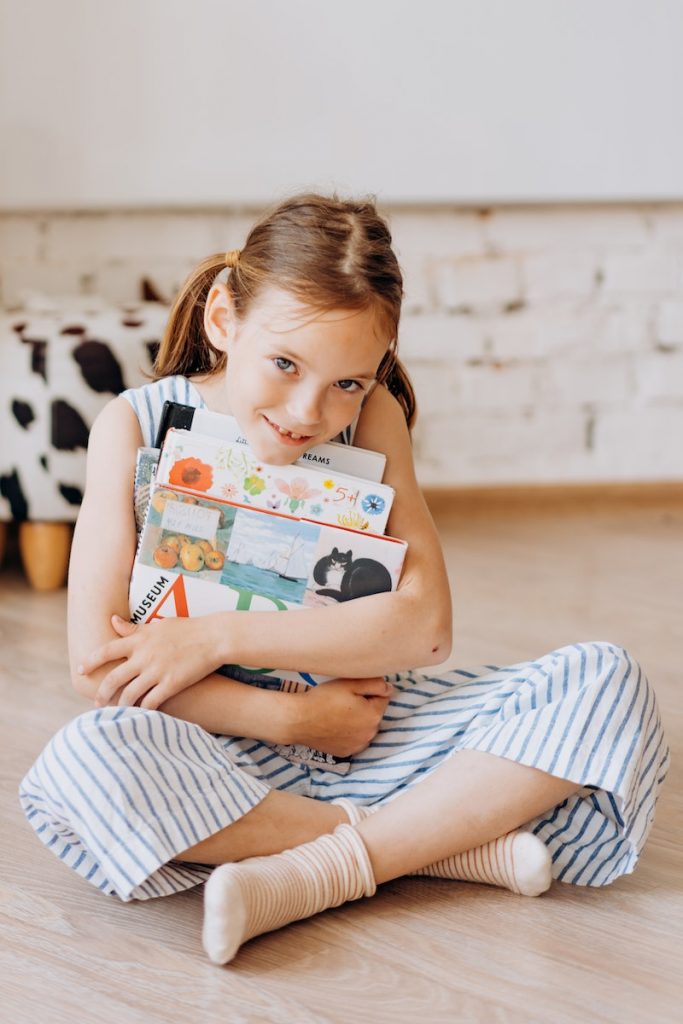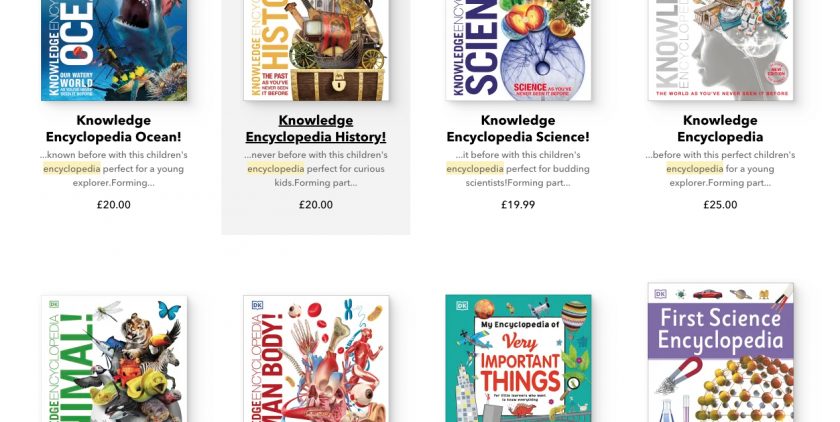Encyclopedias and reference books, read-aloud books, textbooks, dictionaries..what books do you actually need in a home-ed library?
A good homeschool library needs a mixture of textbook-style books (to use in lessons), readable reference books that are pleasurable to dip into outside of lessons and an assortment of books to be read for pleasure.
Reference books
Reference books provide factual information: Textbooks can be reference books, but reference books don’t have to be textbooks.
Most of our favourite reference books are from DK. As well as books about specific interests, DK publish some of the best encyclopedias, the content of which supports curriculum up to KS3/4 so are a brilliant investment for homeschooling.
DK childrens’ books are gorgeous and engaging so have double usage as read-aloud books with younger learners too. The Eyewitness series is great to follow a child’s interest or inspire curiosity and the Knowledge series takes the information up a notch which is great if you want to generate ongoing project work topics for your homeschool.
Textbooks
When it comes to textbooks, you don’t need textbooks to teach, until you’re teaching to exams and which books you will need will depend on which exam board you plan to use. However, textbooks offer a framework that can make teaching home-ed much easier for the homeschool parent. For older homeschoolers studying independently, textbooks can help them stay on track, monitor their own progress and identify tricky concepts.
When it comes to choosing textbooks, I recommend either downloading the e-book samples or buying second-hand textbooks from a variety of publishers to find the books your homeschooler finds easiest to follow.
Revision Guides
Revision books are useful books to have around – whether it’s revision books for SATS, guides to the 11+ or GCSE revision guides. Home educators can use these revision guides to check where students are up to in individual subjects, identify learning gaps and to use as guidance when planning homeschool curriculum for the term/year. Revision guides are an easy way to show pupils what they’re aiming to understand by the end of the course.
We like the simple layouts & easy-to-follow language of CGP and Collins books, and Pearsons is a treasure trove of revision materials, in book format and on the website.
After homeschoolers study a topic, revision guides can be used as a round-up lesson to consolidate knowledge and then again as pop-quizzes at a later date to recap earlier learning. Repetition is the most effective way to learn.
Workbooks
Technically not library books – neither reference books, nor pleasurable reading- workbooks are useful for home education. Workbooks allow pupils to independently work through skills they’ve been taught, practising until they feel their knowledge is sound. Again, Collins workbooks are a reliable choice, but some of the best workbooks are workbooks we’ve found in supermarkets!
Workbooks includes puzzle books as well as books specifically designed to target a specific skill – logic puzzle books, maths puzzles, wordsearches etc are all useful tools for passive learning. The Works is one of the best places to browse for fun and unusual puzzle books.
Books to read for pleasure, and books to read together
Reading is, I believe, the cornerstone of home education; the aim of which, in essence, is to impart knowledge to learners. Reading plays a major role in our homeschool routine, in lesson structuring and in how our homeschoolers spend their free time. Reading improves creativity, exposes children to ‘big issues’ in age-appropriate ways, and allows children to experience different cultures & the experiences of other people from the comfort of their home. Stories are as important as facts.
E-Books
E-books are a great option for home educators because e-books are always cheaper. That said, I’m a traditionalist, especially when it comes to reading for pleasure and much prefer a book in my hand. Different people prefer different mediums to read. One of our children prefers e-books because he finds it easier to keep track of sentences, whereas with a real book, he often loses his place; e-reading helps him focus.
Some reference books actually work better as ebooks because some include QR links to direct readers to more information. It’s worth checking the difference between the hard copy and the ebook version before making a homeschool purchase.
If you’re looking to stock a home-ed library, this post might be useful.



